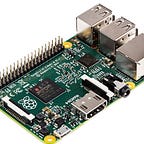Understanding the Basics and Applications of Blockchain Technology
Introduction to Blockchain
Blockchain technology is revolutionizing the way we think about data management and transactions. Originally conceptualized as the underlying technology for Bitcoin, blockchain has since evolved into a versatile tool for various industries. In this article, we will delve into the fundamental aspects of blockchain and explore its myriad applications.
What is Blockchain?
At its core, a blockchain is a decentralized ledger of all transactions across a network. This means that the information is not stored in a single place but rather distributed across several nodes (computers). Each block in the chain contains transaction data, a timestamp, and a cryptographic hash of the previous block, making it inherently secure and tamper-proof.
Key Features of Blockchain
- Decentralization: Instead of relying on a central authority, the blockchain relies on a distributed network of nodes.
- Immutability: Once a block is added to the chain, it cannot be altered or deleted.
- Transparency: All transactions are visible to all participants in the network, fostering trust and accountability.
- Security: The cryptographic nature of blockchain ensures data integrity and privacy.
Blockchain Applications
While blockchain began as the foundation for cryptocurrencies like Bitcoin, its potential extends far beyond digital currencies.
Financial Services
The financial industry is one of the most significant adopters of blockchain technology. From enabling secure and quick cross-border payments to creating smart contracts, blockchain is set to transform the sector radically. Goldman Sachs and JPMorgan Chase are among the notable institutions exploring blockchain solutions.
Supply Chain Management
Transparency and traceability are critical in supply chain management. Blockchain can provide real-time tracking of goods from origin to destination, ensuring authenticity and reducing fraud. Companies like IBM and Walmart are already implementing blockchain for their supply chains.
Healthcare
Blockchain technology offers a secure way to manage and store medical data, ensuring that patient records are accessible only to authorized personnel. This can significantly improve data interoperability and patient care. Projects like MedRec and Gem Health aim to integrate blockchain into healthcare systems.
Real Estate
Real estate transactions are often time-consuming and fraught with bureaucratic hurdles. Blockchain can streamline the process by providing a transparent, immutable record of property ownership and simplifying the transfer of assets. Companies like Propy are pioneering blockchain usage in real estate.
Government and Voting
Blockchain can bring more transparency and security to governmental processes, especially voting. An immutable ledger can ensure that votes are correctly counted and cannot be tampered with, promoting trust in electoral systems. Countries like Estonia are experimenting with blockchain-based voting systems.
Challenges and Future Directions
While blockchain has immense potential, it is not without challenges. Scalability, energy consumption, and regulatory issues are significant hurdles that need addressing. However, ongoing research and development are promising, with numerous startups and established companies investing heavily in blockchain technology.
Conclusion
Blockchain technology is more than just a trend; it is a paradigm shift with far-reaching implications. From financial services to healthcare, supply chain management, real estate, and even governmental operations, the applications of blockchain are vast and varied. By understanding the fundamentals and staying informed about ongoing advancements, we can better appreciate how blockchain is set to shape the future.
